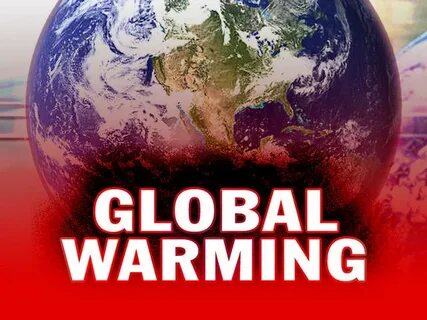Despite being one of the two most important factors global warming poses, many individuals still ask themselves, “What exactly is it and why does it matter”. Well Global warming is a slow rise in a planet’s temperature which comes as result from various human activities.
It is a very serious part of climate change which comes along with a phenomena that modifies the entire planet’s temperature, its weather conditions, and even the severity of different climatic events on the planet. The reason why the planet continues to get warmer is because the atmosphere acts like a sponge which absorbs radiation coming from the sun. A few examples of greenhouse gases include carbon dioxide, methane, nitrous oxide and many more.
Now with all of this said, the issue we face at this current time is that people have modified their way of living by adapting to industrial and agricultural activities which have resulted in an increase in the concentration of greenhouse gases, thus triggering the greenhouse effect and making the temperature go up.
Hence the problem of global warming stems from human activities such as fossil fuel consumption, landfills, agriculture, bakeries, and so on. In reality while focusing on the concept of global ,merging means making the planet’s average annual temperature to be a lot more higher than what it currently is. In short global means the Earth and warming is its contemporary term.
A short summary of the previously mentioned statement would be the warming of planet x over a period of time.
Causes of Global Warming
Global warming has a human and natural cause. Its major causes are burning fossil fuels Agriculture, industrialization, deforestation, and waste disposal. Coal, oil, and natural gas are fossil fuels which are the primary sources of energy for industries, transport, and electricity.
When those fuels are burned, they produce carbon dioxide (CO2) which is the leading cause of global temperature increase. Plants and trees, especially forests utilize CO2 in the atmosphere for making food which helps maintain the climate. On the other hand, deforestation effects climate change as it provides carbon absorption for agriculture, logging, and urbanization which raises the level of CO2 in the atmosphere. Greenhouse gases are emitted by industries during manufacturing processes and agriculture emits Methane from livestock and nitrous oxide from fertilizers.
Furthermore, those gases increase the effects of global warming. A huge amount of dump waste in landfills gives out Methane, a greenhouse gas stronger than CO2 during decomposition. Improper waste management remains one of the major reasons of global warming.
Impact of Global Warming
Around the world, the effects of global warming can be felt already with shifting ecosystems, weather conditions, and even people’s lives. The earth’s average temperature has increased by more than 2°F or 1.1°C since pre-industrial times, triggering heat waves that are intense and even more frequent.
Extreme weather events such as hurricanes, wildfires, floods, and even droughts are becoming more common due to climate change. Glaciers and polar ice caps are melting at a rapid pace, resulting in the sea levels rising. Communities along the coasts are prone to erosion, loss of habitat, and most importantly flooding. Climactic changes are threatening biomes and decreasing biodiversity while also putting at risk several species that need stable conditions to exist.
Also, rising temperatures increase rates of diseases, worsen air pollution, and worsen heat-related illnesses. This population consists of children and the elderly which puts them at greater risk.
What Can We Do to Stop Global Warming?
Taking action today enables us to work towards a means to combat global warming. Communities readily have the ability to fight this problem by altering their lifestyles and policies. It is always favorable to use energy-efficient devices and appliances. LED lighting, proper insulation, and building energy-efficient homes and offices are other ways to improve energy use.
Towns and cities should also switch to public buses and electric cars to reduce fuel consumption. Buying and growing organic food, limiting and recycling waste helps minimize the negative impacts on nature. Trees should be planted to store carbon dioxide and restore natural ecosystems.
Support and foster conservation efforts that will help combat this issue. It is imperative to advise governments and businesses to adopt clean policies and shift their focus towards clean energy sources.
Conclusion
Knowing what global warming is and what causes it helps us combat the climate change crisis. It is a daunting task, but with a concerted effort, we can mitigate the warming of the earth and make it viable for years to come. Every action, no matter how small, helps promote a healthier planet. Every step makes a difference, and makes our planet healthier. Let us start now, because the fight against global warming begins with awareness and vigilance.
